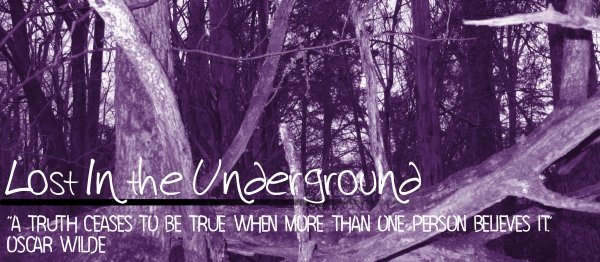...I might as well play with them.
I scribbled the beginnings of this a while ago on the bus (the seven, oh, the seven) meditating on my favorite subject – gender and ascetics – and thought I would clean it up a bit and post it. However, the citations are going to be a bit hazy – given my current limited internet connectivity, and being half a world away from my library. (I rarely identify with St. Jerome – but I need to have my library, okay, man. Understand!)
The gut reaction in an encounter with hagiography is a sense that early Christians (or at least those who had time and education for writing) hated the physical body, and while it’s true that the relationship of Christianity with the body is a difficult one, but it is far more complicated than a simple rejection. (Barring a handful of folks here and there, who did flatly reject the physical body.)
So, if one looks at monasticism and asceticism not as a rejection of the body, but as a rejection of social constructions placed upon the body, requirements of sexual renunciation and celibacy take on a new meaning – relating back to the construction of gender and gender roles in Early Christianity.
For example, this offers an alternative reading of the separation of male and female bodied persons into single-sex monasteries. The practice may not necessarily reinforce gender roles and boundaries. By removing the physical differentiation of sex, monasteries could also remove the temptation to attach social meaning to that physical difference. As there aren't men and women in a single sex monastery, so there aren't men's roles and women's roles within the microsociety of the monastery. Further there is evidence in the Lives and Sayings of the Desert Fathers and Mothers that this lesson was intended to extend to the monastic’s interactions with society as a whole. (I’m thinking of the anecdote in which one of the desert mothers upbraids two monks for making her femaleness an issue – which might be in the Sayings or might have been in The Forgotten Desert Mothers, which is by Laura Swan.)
Obviously, it would be a mistake on my part to attempt to argue that everyone in Early Christianity was thinking along these lines. There’s more than enough misogynists running about through early Christianity. (Tertullian, Jerome, Augustine – I blame you three for many, many things.) And lots of ascetic hagiography is heavy on the “woman-hating” as my sister termed it after what, I suspect, will be her first and last Religious Studies class.
But we’re not talking about a monolith here. ;D And I’m fairly convinced that a decent minority of early Christians were out to overthrow gender norms.
Subscribe to:
Post Comments (Atom)


No comments:
Post a Comment